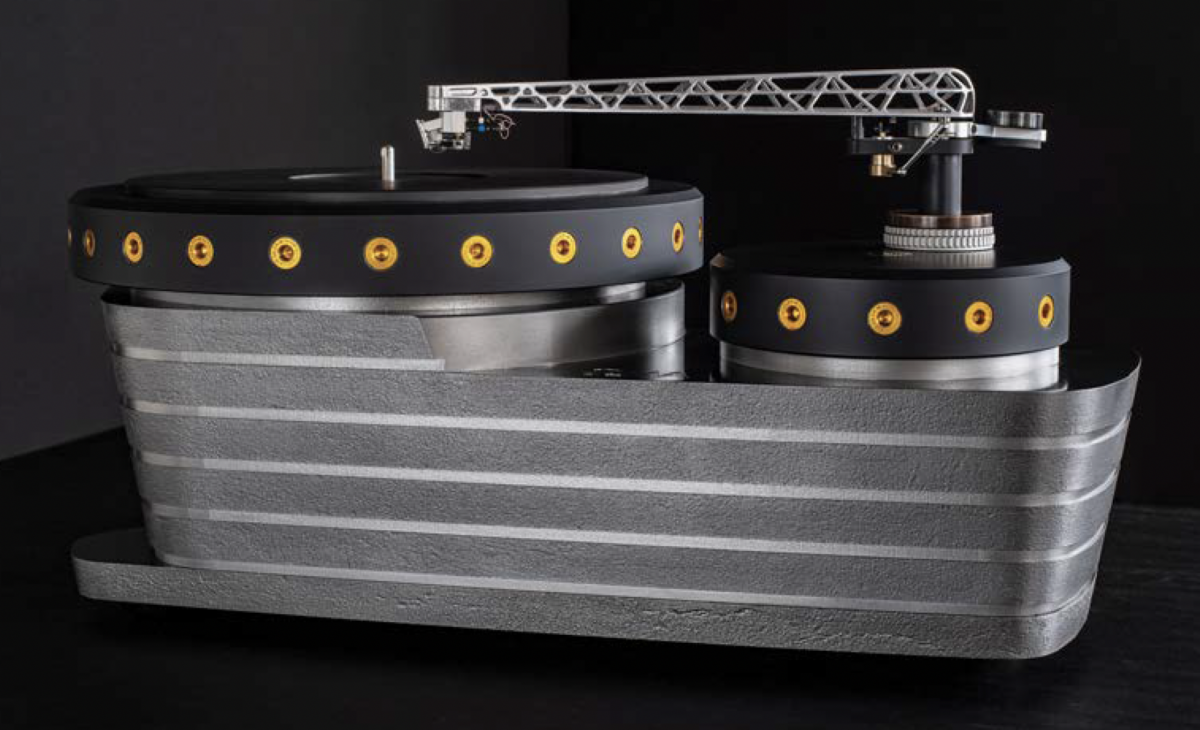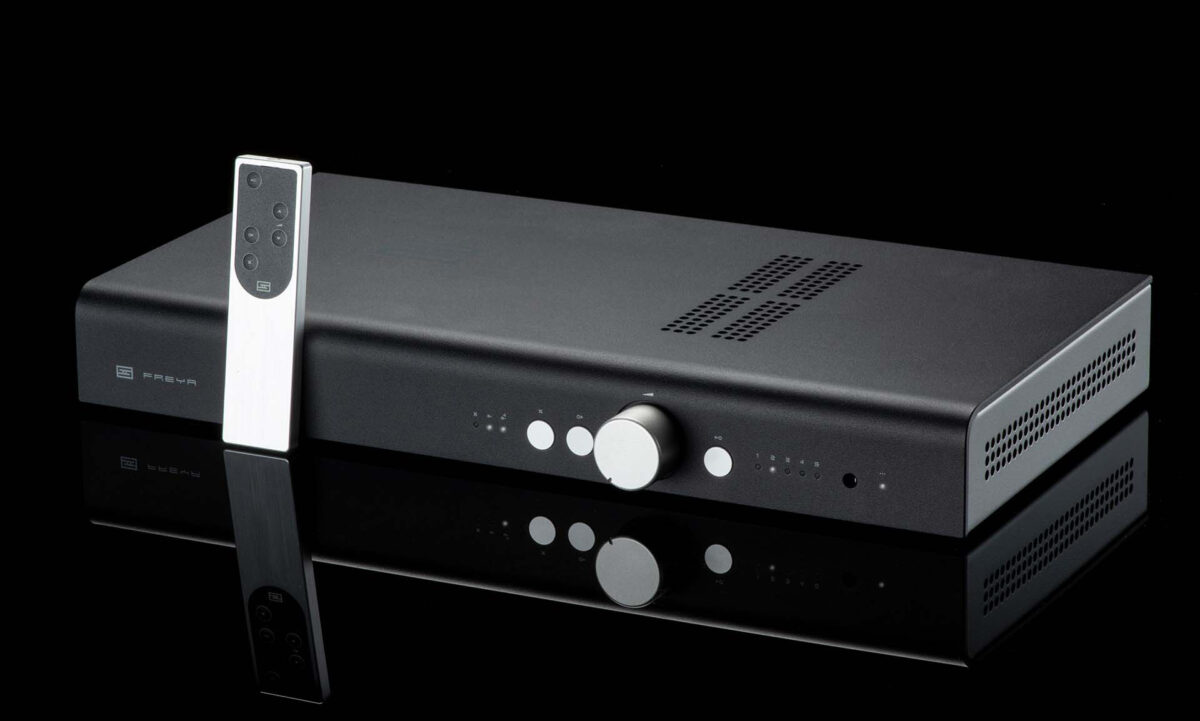

When the British firm Rega introduced its original Planet CD player about a decade ago, some audiophiles hailed it as a breakthrough, and with good reason. The Planet’s sound was competitive in many respects with that of some of the more costly players of the day, yet it sold for under $900. Better still, the Planet was a digital player designed by and for analog enthusiasts. And even if it did not equal analog sound quality, it certainly came closer than any mid-priced player in my experience. Not surprisingly, Planets sold like hotcakes.
Over time, Rega updated and improved the Planet, first offering the Planet 2000, and then a higher-performance player called the Jupiter, but neither of these critically acclaimed units managed to equal the Planet’s reputation. I would speculate that Rega has been looking to create another affordable breakthrough player ever since, and now the wait is over. Just as the first Planet did in the 1990s, Rega’s $995 Apollo offers “welcome-to-the-nextlevel” performance for today’s budget-minded audiophiles.
Resolution, focus, and extended frequency response are among the performance standards we use to determine how good high-end CD players really are, and judged by these criteria the Rega Apollo is easily the best sub-$1000 CD player I’ve heard. To understand what the Apollo does right, I found it instructive to compare it both to a good mid-priced competitor and also to a higher-priced, top-tier reference player. Here’s what I learned.
Straight out of the box, the Apollo exhibited more resolving power than any other mid-priced player I’ve auditioned thus far. For example, in direct comparison to YBA Designs’ $1499 YC201 CD player—a fine player in its own right—the Apollo consistently retrieved layers of delicate textural and transient details that the French-designed player could not. Larry Coryell, Badi Assad, and John Abercrombie’s Three Guitars [Chesky] makes an ideal illustration, because it relies upon small, inner details to showcase differences between the playing styles of the three master guitarists, and to highlight the subtle timbral differences between the guitars they play. Through the YBA Designs player this recording sounded absolutely lovely, even magical, but the Rega gave me magic and something more. It made even subliminal details snap into place, as if removing a lowlevel veil from the signal path. Plectrum noises, fingering sounds, variations in attack and sustain, the resonant instrument overtones, and even the sound of the air in the room suddenly became explicit, bringing alive the three-dimensional, “you are there” qualities for which Chesky recordings are known. Perhaps the only downside to all this detail is a very slight tendency for the Rega to overemphasize sibilance, or to show minute traces of splashiness on abrupt high-frequency transients. But unless you’re using very transparent interconnects and electronics, I think these minor flaws would rarely be noticeable.
Apart from capturing details effectively, the Apollo also sounds sharply focused, so that fundamentals and harmonics as well as details large and small are presented in near-perfect alignment. As a result, instruments and voices sound whole, coherent, and self-consistent— never fractionated or disjointed. To appreciate how much realism this focused quality can add, try listening to the very beginning of “Take Me Home” from Holly Cole’s Temptation [Metro Blue]. Just before the song starts, you’ll hear Cole at centerstage first mouth, then whisper, and finally speak aloud the words “Here we go” (perhaps to cue the other members of the trio that the recording is about to begin). Though Cole’s words are at first barely audible, the Rega’s precise focus and rock-solid imaging make them sound eerily believable. The Apollo delivers this sort of focus and coherency most of the time and across most of the audio spectrum, the only small exceptions being the infrequent moments of treble splashiness noted above.
Finally, the Apollo offer beautifully extended frequency response with tightly controlled, richly textured, and very potent bass. To see just how energetic the Rega’s bass can be, put on the “Power of Denial” from Thomas Newman’s soundtrack from American Beauty [Dreamworks] and drink in the plunging, shuddering, very low frequency synth-bass figure that opens the track. Heard alongside the Apollo, many mid-priced players sound diffuse or rolled off at both frequency extremes.
Only in the area of soundstage depth can the strongest mid-priced competitors, such as the YBA Designs YC201, surpass the performance of the Apollo. While the YBA’s reproduction of depth cues is truly first-rate, the Rega’s stage depth, for whatever reason, is merely very good.
I learned a lot by comparing the Apollo to my reference Musical Fidelity Tri-Vista SACD player (a $6500 unit with vacuumtube analog outputs). The more costly player offered greater smoothness, more highfrequency “air,” even more finely resolved details, better soundstage width and depth, and perhaps a touch better bass. But the surprising thing was that despite these performance differences the overall gestalt of the two players was actually quite similar. In fact, I found it tempting to picture the Musical Fidelity as the more mature and polished embodiment of core sonic virtues that were already present in nascent form in the Rega.

This is precisely why the Apollo deserves to be considered a breakthrough product. While other mid-priced CD players have been edging toward sonic excellence by making gradual, incremental improvements, the Rega has moved forward with giant, confident strides to deliver sound reminiscent of that of multi-thousand-dollar players. Though this CD player’s musical reach may occasionally exceed its grasp, the Apollo takes listeners closer to the absolute sound than any other sub-$1000 player I’ve heard. Once again, Rega has given us a digital player that offers breakthrough performance at a bargain price.
Tags: REGA
By Chris Martens
More articles from this editorRead Next From Review
See all
Oswalds Mill Audio K3 Turntable
- Apr 12, 2024

2023 Golden Ear: Schiit Freya S Preamplifier
- Apr 12, 2024




















